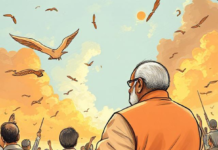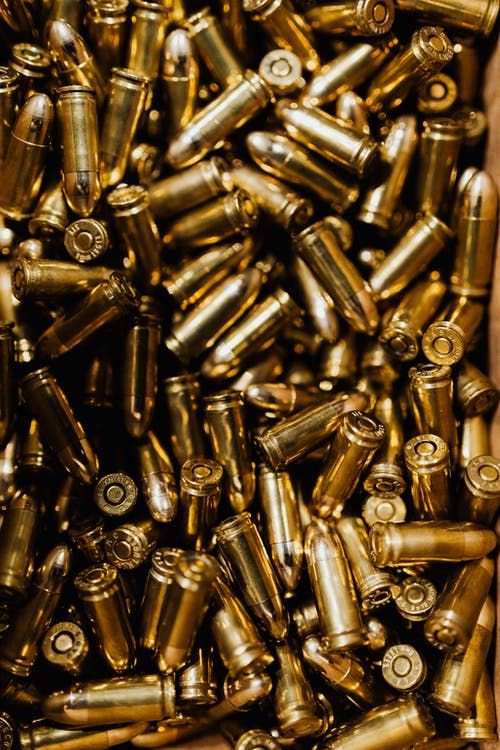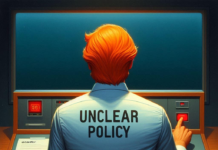INVESTMENT PERSPECTIVE
By J Mulraj
Jul 10-16, 2022
Markets are signalling a US recession
Confucius said ‘one should not pick fight with one’s bullet supplier’ (Disclosure: Confucius didn’t say it, I did, but adding his name attracts more attention J).
Egged on by a clueless Joe Biden, Europe did just that – it picked a fight with its supplier of bullets, in this case, of energy, namely Russia. It did not pay heed to Russia’s demand to not allow Ukraine to join NATO, but, instead, stood up for Ukraine’s right to. The cost of this miscalculation has been heavy, for Ukraine, (which suffered deaths, injuries, migrations and destruction to property), for Europe (which suffered and is suffering, an energy shortage, one that is getting worse) and for the world (which suffered inflation and a looming food crisis). The irony is that NATO now accepts that Ukraine membership was not even being considered! So, then, what was the tragedy all about? Was it worth it picking a fight with your bullet supplier?
The bravado displayed by Europe in ignoring Russia was, most likely, based on the Biden assurance that his weapon (viz. tough trade and finance sanctions) would prevail over Putin’s weapon (viz. control of energy supplies on which Germany depends for 40% of its needs, supplied via Nordstream 1 pipeline). Biden was wrong in his assessment, but the price for his foolish error is being paid by Ukrainians, Europeans and the world. As far as Russia is concerned, high oil/gas prices have ensured it enough income to continue a prolonged war, and its currency is the only one, as per the latest Economist, to have risen against the US $ in 2022. All other currencies have declined, as global investors fly to the safety of the USD.
Things are going to get worse for Germany in terms of energy supplies. Already, Russia has cut gas supplies via Nordstream 1 by 40% because a turbine used by it has been sent to Canada for repairs, and is unable to be sent back because of the US sanctions! Again, it is Germany, not USA, that suffers the consequences of US sanctions. Further, Russia has, from July 11, shut down, for 10 days, gas supplies completely to Germany, citing maintenance work. The worry is that whether gas supplies will resume on July 21. If Should Russia decide not to, Germany can easily go into recession and, being the world’s 4th largest economy, will drag down others. That’s because, as per this video, industry is the largest consumer of Russian gas, followed by households (see around 8:45). The German Government has promised flow for households, which is used for heating, and so it will be industry that would be deprived. The CEO of BASF, the largest chemical company, has stated that if gas is not available, more than half of Germany’s manufacturing units would shut down!
Germany has not planned its energy transition well, and is paying the price. It had, under pressure from the Greens, shut down its nuclear plants. It hoped to be able to transition to renewable energy, but climatic conditions do not permit it the luxury. Both sunshine and wind are unreliable, and scarce, in the country. And, its decision makers decided, wrongly, to fight with its bullet supplier!
The whole world has made policy decisions based on a judgement call that ‘green energy’ is needed to fight carbon emissions and save the environment. This piece, ‘The Realities of Going Green‘, by Paul Homewood, is a must read article. For example, Homewood points out that EV batteries do not produce electricity but merely store it. The electricity is produced elsewhere. In USA, 40% of electricity is produced by coal fired plants; hence 40% of EV batteries are carbon emitting, if not by themselves, then in their production. Also, in order to produce EV batteries, you need minerals, lithium, copper, nickel. To get these you have to dig 500,000 pounds of dirt for each battery. So the reality of going green is less rosy than painted.
It is also ironic that the developed world is pushing for ‘green energy’, ignoring the above factors, but, at the same time, is also pushing the ESG (environmental, social and governance) agenda as the basis for providing funding. This has its own, sometimes, disastrous, fallouts.
For example, in the US, fossil fuel companies were denied funds for exploration of oil to add to their reserves, on ESG grounds, as the extraction of fossil fuels fails the E, or environmental, criteria. So, for years large companies like Exxon, Chevron, Occidental etc, were starved of institutional funding to explore for oil/gas, and the last refinery, to convert crude oil into things like petrol and diesel. Both gasoline and diesel hit highs, annoying vehicle owners, who double up as voters and may express their angst in the November elections to both houses.
A big part of the reason of the Sri Lankan crisis can also be traced to such ESG concerns. Apparently, in order to obtain funding, Sri Lanka caved in to pressure to abide by ESG norms, and forced the country to switch from nitrogenous fertilisers to organic fertilisers last year. No one bothered to plan for the switch, so there were no stocks of organic fertilisers available. Output of food and tea (the main export earner, besides tourism) fell, triggering inflation and a shortage of foreign currency. Covid destroyed tourism. Sri Lanka got an ESG score of 98, near perfect, but went bankrupt doing so.
So whether it is the imperative to go green, without fully analysing the implications, (and renewable energy is a long long way off from meeting global energy needs anyway) or if it is the insistence on using ESG norms to access finance, policy decisions have been misdirected.
Several other countries are likely to go the Sri Lanka way. Of particular immediate concerns are Pakistan, Argentina and Turkey, in all of which inflation has hit unsustainably high levels. Egypt is another, vulnerable to over dependence on wheat exports, something that can trigger food riots.
Global debt is around $ 300 trillion. With central banks raising interest rates in order to fight inflation, the servicing of these debts will be questionable. The large global economies are all facing problems. US inflation in June was over 9%, and the 2 year yield curve rose, whilst the 10 year yield curve fell. This is called an inversion, and is a signal for a likely recession (two successive quarters of negative growth).
China’s GDP grew only 0.4% in Q2 ended Jun 22. This is just above negative levels. It has been hit by several negative forces, some man made (like the lockdowns due to a zero tolerance Covid policy) and some natural (heavy floods and landslides wreaking havoc). Chinese banks, including mainstay banks like PBOC, are witnessing runs. Earlier it was the smaller, rural co op banks. Home buyers are threatening not to service mortgage loans because builders have not finished the projects and given delivery of apartments. This would likely lead to further bank runs. So China cannot be the world’s growth engine, as it has been, earlier.
Japan, the third largest, is also witnessing limp growth, due to adverse demographics and, strangely, continues with an easy money policy, which only kicks the can further down the road. Germany, the fourth largest, we have already discussed above. Neither can provide a growth impetus.
If anyone can, to an extent, it may be India, #6 in the world. Industrial production grew an impressive 19.6% in May. But India has its own set of structural and governance problems. Government is unwilling (though it is able, if it wants) to tackle white collar crime. It merely twiddles its thumbs and allows the likes of Mallya, Nirav Modi, NSEL, and, now, NSE co-location scamsters, to loot and go scot free. Unless it delivers justice to victims of scams, it, too, will witness electoral anger in future elections.
Last week the BSE sensex lost 720 points to end at 53760. What now?
In geopolitics, Turkey has organised talks between Russia and Ukraine on the modalities to export wheat and they are reportedly close to an agreement. Ukraine, too, seems to be in short supply of weaponry and cannot, logically, sustain a longer attack. Perhaps it may be more amenable for a settlement, and strive to get access to the Odessa and ports on the Black Sea. Should a peace deal be reached, stock markets will rally. The rally ought to be taken as an opportunity to lighten, for a later entry, as a recession seems likely, nonetheless.
At the July meeting of the US Fed, the general expectation is of a 75 bips (0.75%) interest rate hike. Some are even fearful of a 1% hike, as June inflation numbers were higher than expected.
That could trigger the dreaded recession and lead to a further fall in stockmarkets.
The silver lining is that there is a lot of global money waiting at the sidelines. One does not know when it would start to be deployed. It is possible it may be a few months away.
So investors should start researching for the stocks to buy, whenever their instincts tell them to. Be on the lookout for clouds with silver linings; there are always some around. As Confucius said, ‘the greatest power is often simple patience’ [this time he really did say it!]
Picture Source: https://www.pexels.com/photo/a-pile-of-bullets-5202425/










































COMMENTS